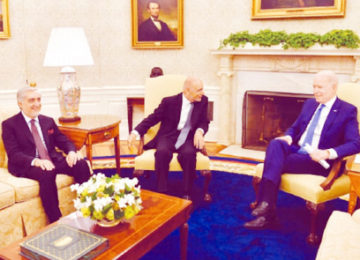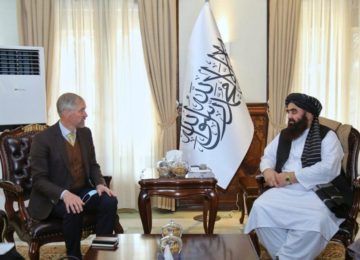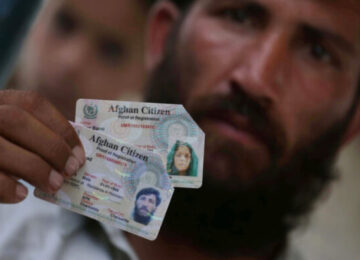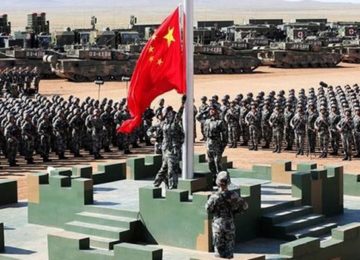September 28, 2018
The consequences of Afghanistan’s increasingly deadly war are weighing heaviest on the nation’s civilians, with women bearing the brunt of the violence. The Taliban banned music and girls education, and restricted outdoor activities of women when the group was controlling most of Afghanistan.
But violence and social pressures have not deterred members of the country’s nascent orchestra of mostly young girls from using music to “heal wounds” and promote women’s rights in the strictly conservative Muslim society.
The ensemble, known as Zohra, was founded in 2014 as part of the Afghanistan National Institute of Music (ANIM) in Kabul, where suicide bombings lately have become routine.
Hope and music
Students and trainers are not losing hope and regularly come to the city’s only institute to rehearse and learn new lessons, says Ahmed Naser Sarmast, the director of ANIM and the founder of the orchestra. Zohra is the name of a music goddess in Persian literature, he explained.
The musicologist spoke to VOA while visiting neighboring Pakistan earlier this month with the young ensemble to perform in Islamabad as part of celebrations marking the 99th anniversary of Afghanistan’s Independence Day. Kabul’s embassy in Islamabad organized and arranged for the orchestra’s first visit to Pakistan.
Despite the many challenges in Afghanistan, Sarmast said, student enrollment has consistently grown and more parents are bringing their children to the institute to study music. Around 300 students are studying not only music at the institute but other subjects, including the Quran, he said.
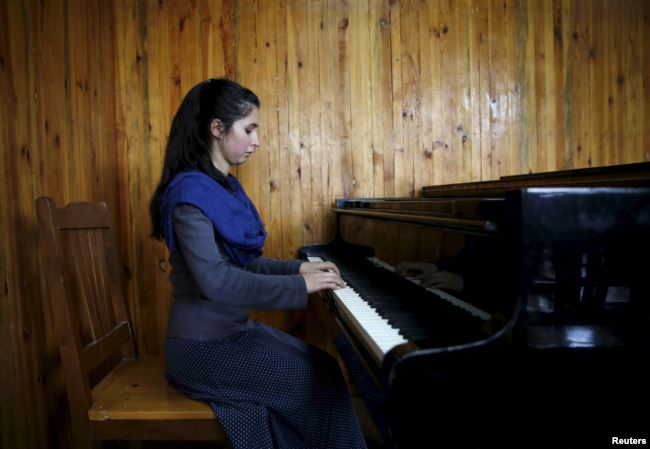
Advances for women
Negin Khpolwak, the orchestra’s first woman conductor, says Afghanistan has made significant advances in terms of promoting women’s rights in the past 17 years. She says there is a need to sustain the momentum irrespective of rising violence.
“We need to stand up to protect those gains and we need to open the doors for other Afghan girls,” Khpolwak said when asked whether deadly attacks around the country are reversing the gains women have made.
But violence alone is not the only challenge for women and girls, especially those who want to study music, she said.
“When you are going in the street with your instrument to the school and they are saying bad words to you and if you are giving a concert in public they are telling the bad words to you. But we are not caring about it,” Khpolwak said.
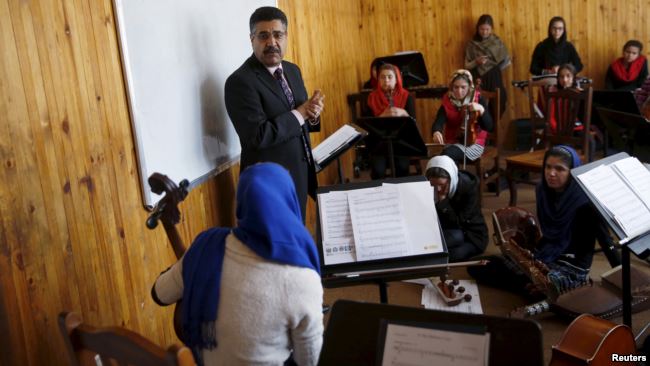
Ethnic groups help each other
Sarmast says that girls and boys in the orchestra come from different Afghan ethnic groups and they help each other when needed.
“It’s hope for the future,” he said.
Ethnic rivalries have been a hallmark of hostilities in Afghanistan and continue to pose a challenge to efforts promoting peace and stability.
“I strongly believe without arts and culture there cannot be security and we are using the soft power of music to make a small contribution to bringing peace and stability in Afghanistan and at the same time using this beautiful, if I can call it a beautiful weapon, to transform our community,” the director said.
Some of the members of the Afghan orchestra were born and brought up in refugee camps in Pakistan, which still hosts around 3 million registered and unregistered Afghan families displaced by years of war, poverty, persecution and drought.
“We are using the healing power of music to look after the wounds of the Afghan people as well as the Pakistani people. We are here with the message of peace, brotherhood and freedom,” Sarmast said.
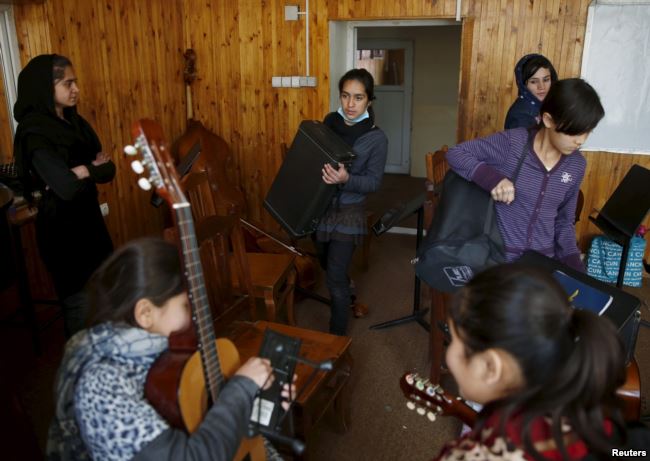
Afghanistan and Pakistan have experienced years of terrorist attacks, including massive casualties on both sides of their long shared border. Bilateral relations are marred by mistrust and suspicion.
The countries blame each other for supporting terrorist attacks. Afghans allege that sanctuaries in Pakistan have enabled Taliban insurgents to sustain and expand their violent acts inside Afghanistan. Pakistan rejects the charges.
The Islamist insurgency controls or is attempting to control nearly half of Afghanistan.
This article originally appeared on the Voice of America Website on September 22, 2018. Original link.




